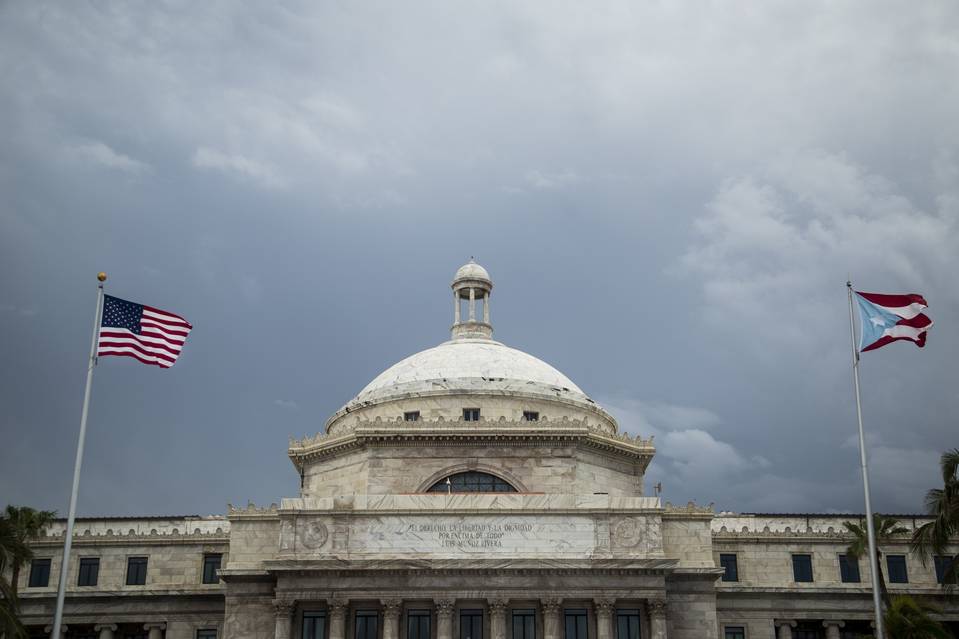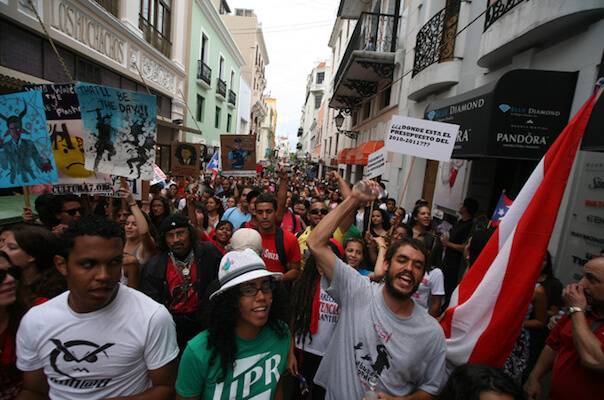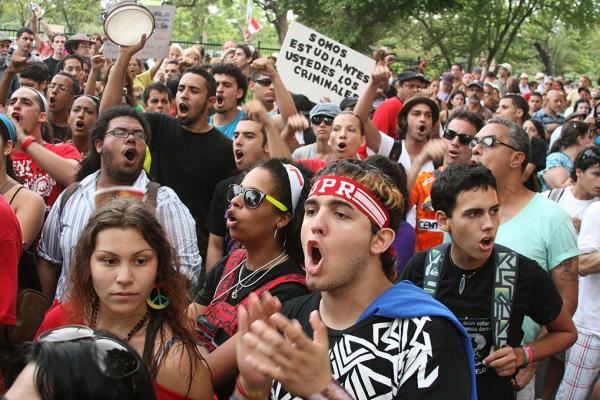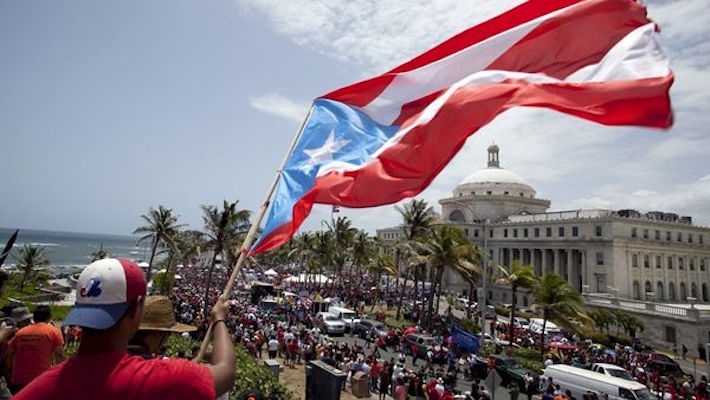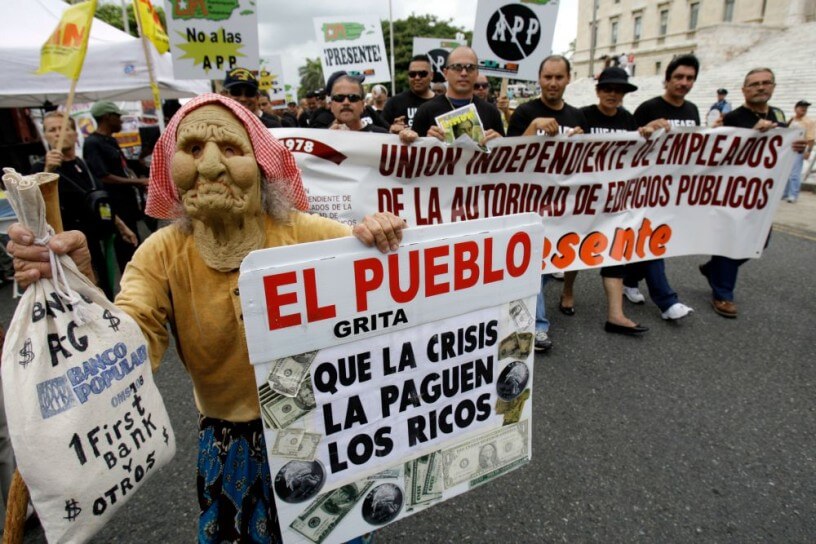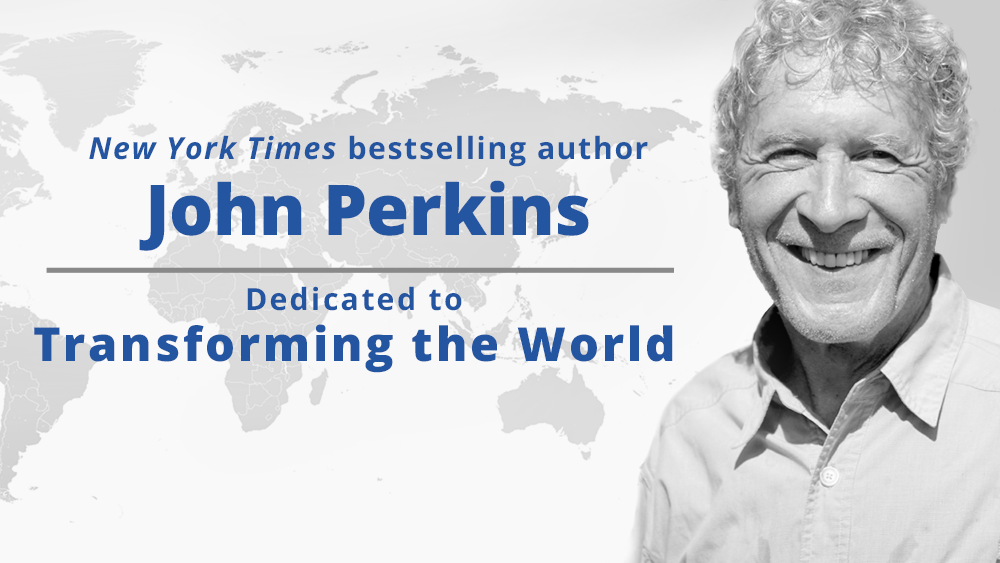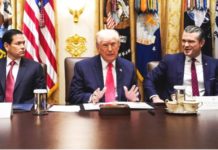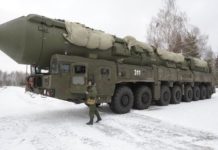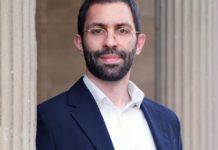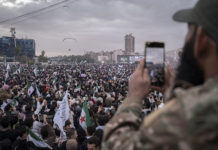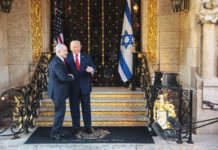Source TeleSur / The Dawn News
Puerto Rico decided not to pay the 422-million-dollar-debt, the greatest one in the history of the island. It’s due to the economic stagnation that the country suffers for over a decade.
The governor of Puerto Rico, Alejandro García Padilla, announced last Sunday the non-payment of the debt with the Government Development Bank (GDB), which is a testimony for the bankruptcy of the country.
The US Congress has reunited several times to determine their course of action on Puerto Rico and to discuss whether to ease the weight of the debt through a restructuring of the terms, but they decided against it.
Julio Muriente, Co-Chair of the National Independentist Movement of Puerto Rico, said in an interview with TeleSUR that the debt is the consequence of a political, social and economic crisis of Puerto Rico caused by the oppression of the US on the country, and that it is beyond being a merely financial problem.
Colonized island, independent debts
“The problem is political in that it’s caused by the colonial status of Puerto Rico. The fact that for the last 70 years the US imposed an economic model designed to attract the investment of foreign capitals, creating dependency on investments, impoverished the country and there’s no political power to solve this”.
Despite the dependency that led Puerto Rico to near bankruptcy, the US doesn’t show signs of regret nor solidarity towards this “Commonwealth” state.
What does the US intend to do?
The US has rejected the request for a restructuring of the debt, and instead offered something perverse: to install a Fiscal Control Board in Puerto Rico.
The installation of a Fiscal Control Board would mean that the US would take over the control of Puerto Rican economy and politics. Federal officers would be able to make decisions that overpower those of the government, and decide how money is spent, who gets to be paid or who has the power to veto, amend or annul the laws of the country.
“Everybody in the country rejects the Fiscal Control Board, it’s outrageous and offensive, because it’s a way for the US to have control over the fiscal investment”, said Muriente.
Puerto Rico found no help in Washington, where Democrat and Republican Congress members haven’t reached any type of agreement on how to create a real solution for the island.
Political Scientist Carlos Díaz Olivo affirmed that “the US doesn’t know what to do with Puerto Rico”. In 1898, Washington was determined to invade Puerto Rico and Cuba as a part of its nascent imperialist strategy. “Washington is interested in shaking off this Caribbean island of 3,5 million inhabitants, but he doesn’t know how to do it”, said Díaz Olivo.
Potential economic consequences of the non-payment
– Businesses and investors would lose confidence in the ability to make a profit in the country. therefore, Puerto Rico’s ability to overcome the fiscal and economic crisis would be seriously hindered.
– Industries already located in the country could choose not to expand.
– Puerto Rican bondholders, who have bonds of the Government Development Bank, would lose the money they invested and that would deprive these people from their savings, which in many cases they had intended to use during their retirement. Furthermore, they could demand the state for their loss.
– A greater demand for the bank to give financing to citizens.
Social consequences
– The people will be harmed because it won’t be possible to keep up with the costs of (already deficient) public services.
– Reduction in the money allocation for the next fiscal year.
– Cuts in the money that the government gives to several NGOs.
– Increase in emigration
– It’s estimated that 45% of public schools will be shut down in the next five years.
Each week, 1,600 Puerto Ricans leave the island to try to make a living in the US. This deprives the country of the tax income it needs to subsist.
What is a “Commonwealth” state?
Puerto Rico is a US colony since 1952, despite being called a “Commonwealth” state to avoid explicitly breaking the law of the United Nations.
The island is since then a territory with limited ability to govern itself, with a Constitution that deals with internal affairs, but with its sovereignty in the hands of the US Congress.
Washington DC decides every aspect of Puerto Rico’s financial system, foreign relations, migration and commerce. Puerto Rico isn’t allowed to make commercial treaties with any country nor to welcome any ship that comes from anywhere else than the US.
Puerto Ricans are US citizens and their currency is the dollar. However, according to Muriente, the Commonwealth status of the country is being criticized by the population.
“There’s a growing rejection, which doesn’t necessarily mean a support to the independence of Puerto Rico, but the necessity of having power to benefit services and not creditors.
